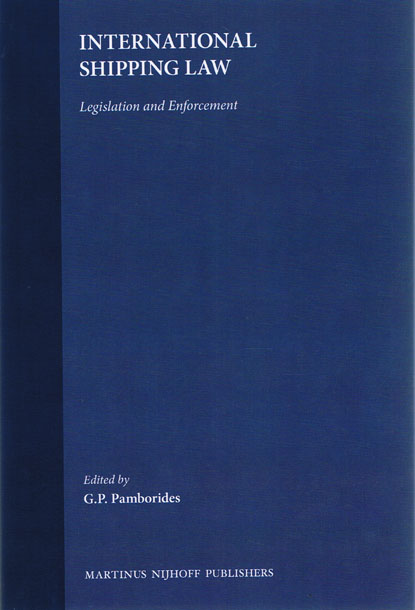
The combination of the Port State Control system that is currently in operation and the tactics employed by the International Maritime Organization (IMO) for the introduction of rules and regulations for safety and pollution prevention at sea, led to the establishment of a system which has the potential to bring about significant changes. These changes extend beyond the area of safety and pollution prevention, reaching areas lying entirely beyond the scope of IMO, and actually affecting directly private maritime law.
The relevant provisions of the law of the sea are outlined, in order to define the legal framework within which the regulation process for matters of safety and pollution prevention may operate. Special reference is made to the development of the concept of Port State Control and its emergence as a new, alternative method of enforcement under the guidance of IMO.
The study focuses on the modus operandi of IMO and critically evaluates the tactics employed by the organization in pursuing its ends. The book also examines the practices employed by influential port states in enforcing international regulations, and it assesses the reactions of smaller states with large regi